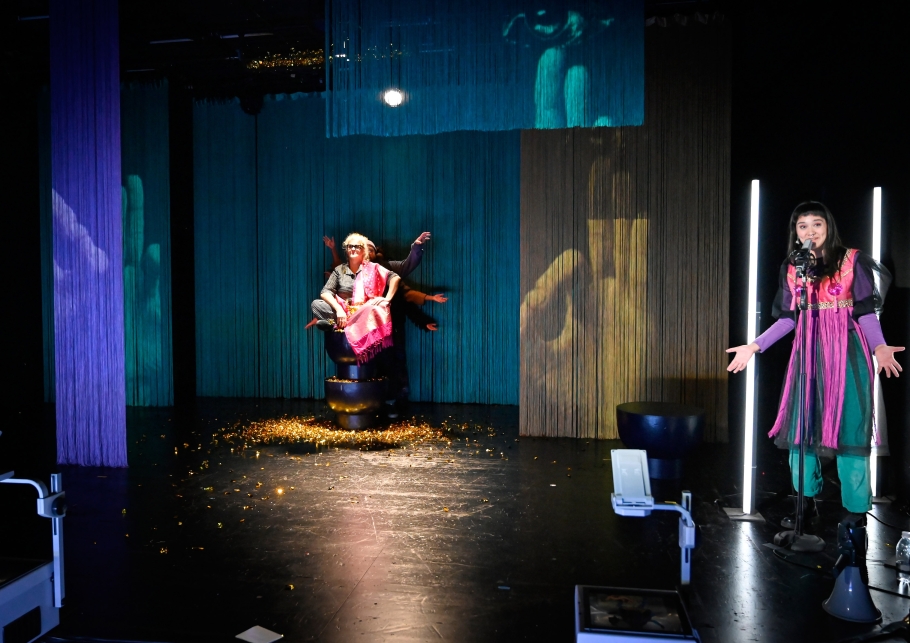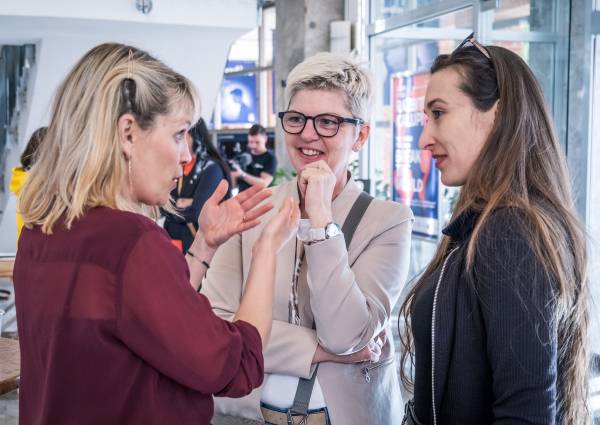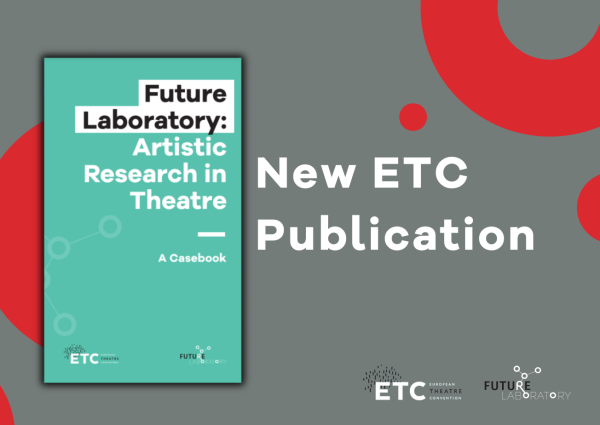A major new sustainability initiative aims to unify European theatres as they work towards net zero emissions by 2030.
The ETC Theatre Green Book, a collaboration between the European Theatre Convention (ETC) and the high-profile Theatre Green Book, is a stress-tested, European-ready version of the sustainable theatre tool to guide theatres step-by-step towards climate neutrality by 2030.
In addition, it includes the first ever cross-Europe certification process to measure sustainable progress across productions, buildings and operations at European theatres.
The ETC Theatre Green Book is a key part of the ETC’s network’s Sustainable Action Code and pledge to become climate-neutral by 2030.
Quick Facts
-
The ETC Theatre Green Book (ETC TGB) develops the successful Theatre Green Book initiative for a European context. It is a collaboration between the European Theatre Convention (ETC), the largest network of publicly funded theatres in Europe with 63 members in 31 countries, and Renew Culture, the co-founders of the renowned Theatre Green Book.
-
It is available for any European theatre and introduces a new self-certification process, available at four different levels: Preliminary, Basic, Intermediate, and Advanced. Each level is claimed by achieving increasingly tight requirements on embedding circularity and reusing materials
-
The ETC TGB is published alongside a new Applied Research Study on Theatre and Sustainability, which includes 9 case studies by European theatres about the benefits of using the tool.
ETC Theatre Green Book - July 2024
Download and read the full version of the ETC Theatre Green Book, covering Productions, Buildings, and Operations.
DownloadGeorg Häusler, Director for Culture, Creativity and Sport at the European Commission, commented: “For centuries European theatres have stood out as important community-building spaces, finding imaginative solutions and new narratives to address societal challenges. The ETC Theatre Green Book promises to be one of the references in the sector as it brings a number of actors together in creating common standards for sustainable Theatre and puts forward free and easy-to-use guide to reach theatres’ net zero emissions on and off stage by 2030.
"I am looking forward to the launch of the ETC Theatre Green Book self-certification process, the first step in monitoring theatres’ progress and a contribution to the European Green Deal objectives. Creative Europe Programme organised in 2023 the European Theatre Forum which provided a space for dialogue on the challenges and opportunities for the theatre sector. We hope this voluntary tool inspires others in the cultural and creative sectors to make essential progress on sustainability too.”
Speaking about the new initiative, ETC Executive Director Heidi Wiley said: “There is no question that European theatres have the desire to become sustainable organisations. The issue is how to make this change happen in an effective and efficient way across an entire continent.
“The ETC Theatre Green Book, and the self-certification, are responses to calls from the sector through the Opole Recommendations to provide more visibility to this goal by setting common standards and references for when things are progressing.
“We believe that networks of theatres can play a crucial role in supporting our sector to overcome challenges and push themselves to become climate neutral. We’re incredibly excited to be partnering with Renew Culture and the Theatre Green Book to make sure this happens at scale across Europe.”

First European Certification for Sustainable Theatre
The ETC Theatre Green Book provides theatres four levels of self-certification: Preliminary, Basic, Intermediate, and Advanced. These are based on hitting pre-defined goals across productions, buildings, and operations.
The approach is designed to be both realistic and effective, getting over the ‘piecemeal’ approach to sustainable activity that leads to “progress in one area while ignoring others that may have more impact.” Theatres will be able to use the resulting self-certification on their websites and promotional material to demonstrate the extent of their sustainable progress to audiences and policymakers.
For a theatre to self-certify as Basic, it would need to:
- Make the majority of its productions to basic standard, which includes that 50% of all materials used in the production have a previous life, and that 65% of materials used in the show are re-used or recycled
- Run the majority of operations to basic standard (across four out of six operational categories), which means progressive reduction of waste, monitoring audience travel, control all heating and cooling by timers to avoid energy wastage
- Develop a sustainability plan for its building and carry out ‘Easy Wins’ to reduce energy use, which might include draught proofing windows and doors, and installing hot water flow restrictors on taps and showers.
Further detail on the different certification levels can be found on the ETC website.

Applied Sustainability Study
The new certification process has been trialled by a group of 9 ETC theatres, who spent a year implementing the ETC Theatre Green Book measures to basic standard at their theatres.
These are: Young Vic (UK), Teatro Arriaga (Spain), Národní divadlo – National Theatre Prague (Czech Republic), Deutsches Theater Berlin (Germany); De Toneelmakerij (The Netherlands); Staatsschauspiel Dresden (Germany), Théâtre de Liège (Belgium), Het Zuidelijk Toneel (The Netherlands), Det Norske Teatret (Norway).
Speaking about their experience in the ‘Focus Group’, Deutsches Theater Berlin said: “The ETC Theatre Green Book ‘Basic’ standard is an achievable first goal.
“The ETC TGB offers a great instrument to analyse the status quo and raise awareness within the organisation, then set a foundation to work with.”
These theatres are sharing their learning with the remaining 50 theatres in the ETC network, and the wider public, through a series of case studies. These can be read in an accompanying publication, the ETC Theatre Green Book: Applied Sustainability Study.
Paddy Dillon and Lisa Burger, the Co-Directors of Renew Culture, which created the Theatre Green Book, said: “Theatre has an impressive power to lead conversations, share messages, and drive a wider social conversation. But theatre can only lead that conversation if we learn to make our own work without harming the planet. The ETC Theatre Green Book and self-certification provides a co-ordinated pathway to make European theatre sustainable.
“Using the success of the Theatre Green Book as a template, it is possible, quite quickly and at low cost, to offer culture across Europe a co-ordinated, effective and measurable shared approach to making culture sustainable.”
--
Main image credit: From ‘Identitti’, a sustainable production by Deutsches Theater Berlin © Thomas Aurin







